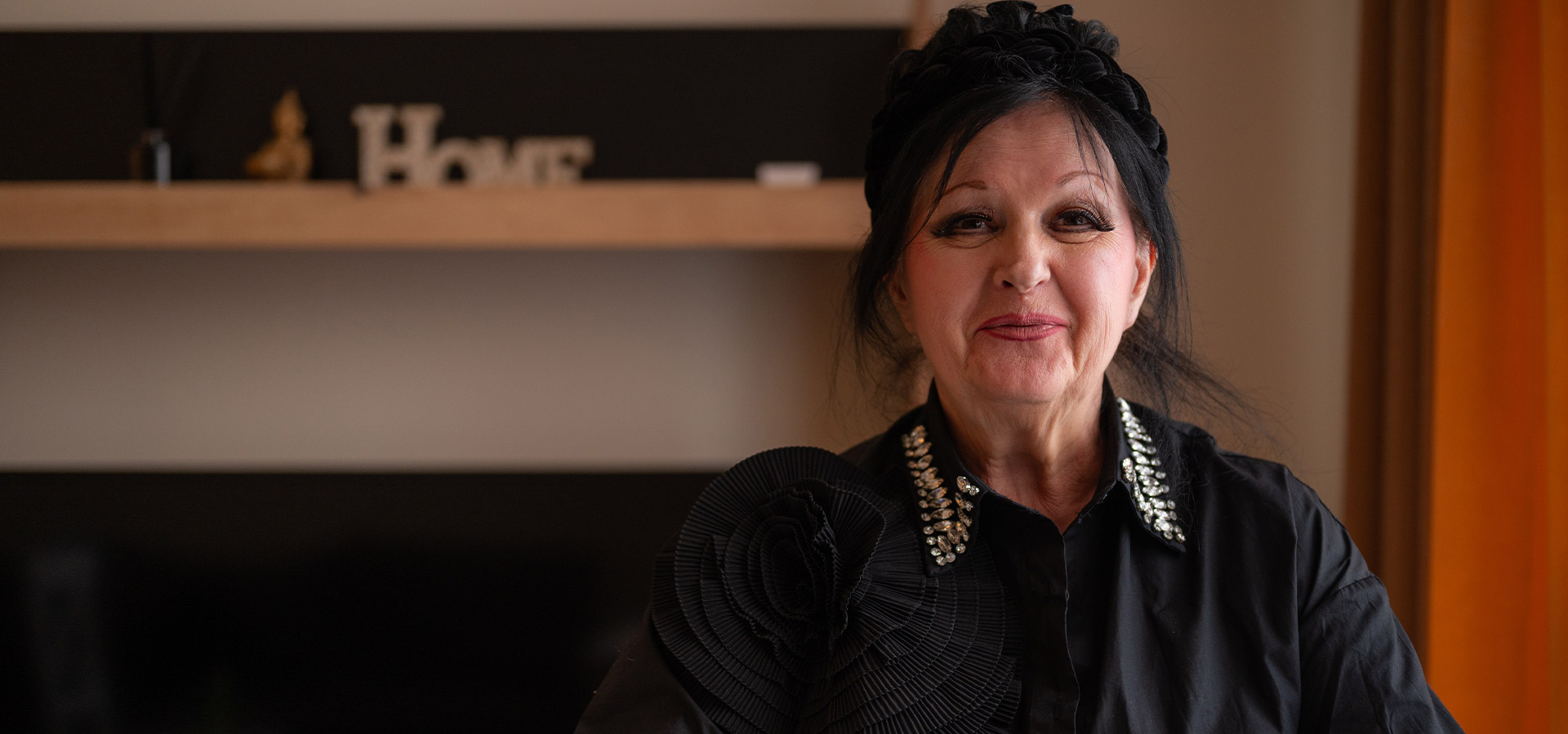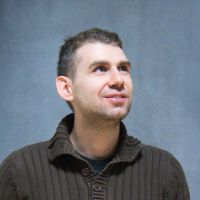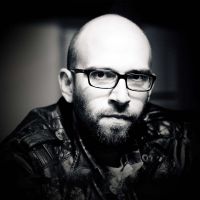Nada Simic: "Hair" lead who became a master of confectionaries
She describes herself as a miracle child, born without flaws. She claims to have lived three lives: at 18, she was the face of "Hair," releasing several albums and performing in almost every corner of the world, and for the last three decades, she has been delighting Australians with her pastry skills. Nada Simić, in an interview for 011info, reminisces about childhood memories and growing up "near Vuk," recalling how she grabbed the microphone and became a star of a controversial musical, and reveals what "pushed" her to venture to the land of kangaroos.
What are your earliest childhood memories?
My mom, dad, brother, and I lived on Patrijarha Gavrila Street, which was then called Dušana Bogdanovića, right across from the technical faculties. I remember that on the left side of Revolution Boulevard, there was a shoe store "Parović," and across from it, a delicatessen, and the tavern "Domovina" in Molerova Street, where Tine and Radojka played the accordion.
Dad liked to take us to the "Metropol" hotel, which was close to us, for a kasato cake. For family gatherings, the tavern "Orašac" was reserved, where several tables would be joined, and with plenty of jokes and laughter, we would feast on barbecue, Banat Riesling, and soda.
When our family celebration came, the priest and churchwarden would come to our house, perform their "duty," and then dad and I would go to the Church of St. Mark, carrying the festive bread for cutting.
With mom, I used to go to the Kalenić or Terazije market, taking trams 7 and 10 and buses 20 and 26, which were buzzing along the Boulevard at that time. Since I was a well-behaved child, they let me go alone to the movies, and I watched films in Kozara, Kosmaj, Dom sindikata – of course, with a bag of sunflower seeds in hand.
I also remember the May Day parades. People would gather on the Boulevard, which was always packed, eagerly awaiting the waving of the white glove from the armored vehicle. Before that, there would be a demonstration of weapons, which would then be parked in Molerova, and us kids would stare at them as if mesmerized.
It was a wonderful neighborhood for life and growing up.
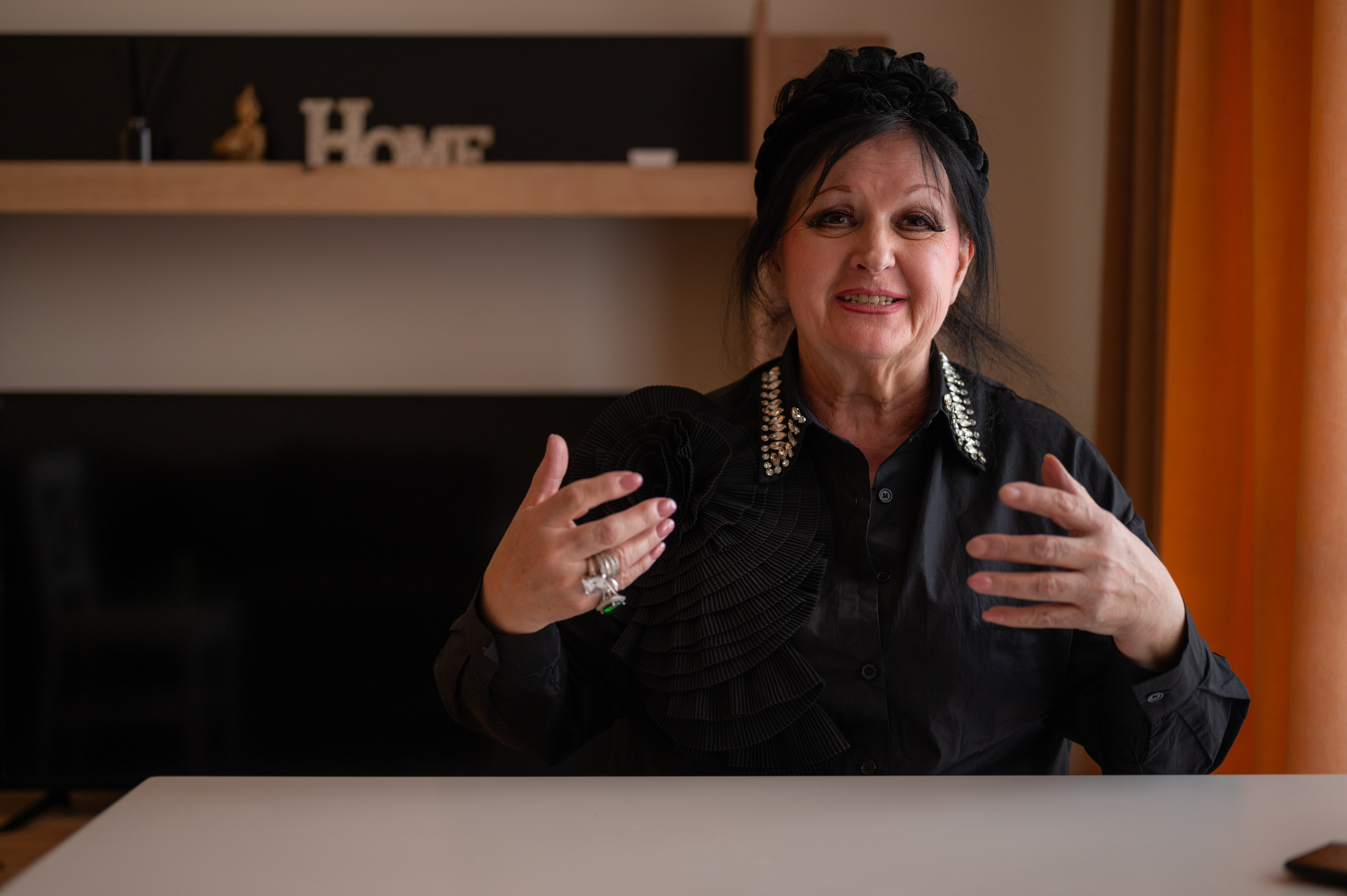
Where did people go out the most at that time?
When I put on makeup, styled my hair, and put on high heels, I would go with my friends to the disco "Kod Laze Šećera," which was the main topic in the city. Then there was "Srbijanka," or "Serbian Tavern," a little further on was "Šumatovac," and "Madera" on the other side.
Often, you could bump into Toma Zdravković in restaurants. He would enter first, followed closely by his entourage. He would wish everyone a good evening and immediately grab the microphone to sing. The guests would be thrilled. However, there was a certain "house rule" respected, and after midnight, there would be no revelry.
We used to change restaurants about ten times a night until we found one we liked. All in all, we lived like kings. It was a life of beauty, filled with good and dear people, devoid of any violence.
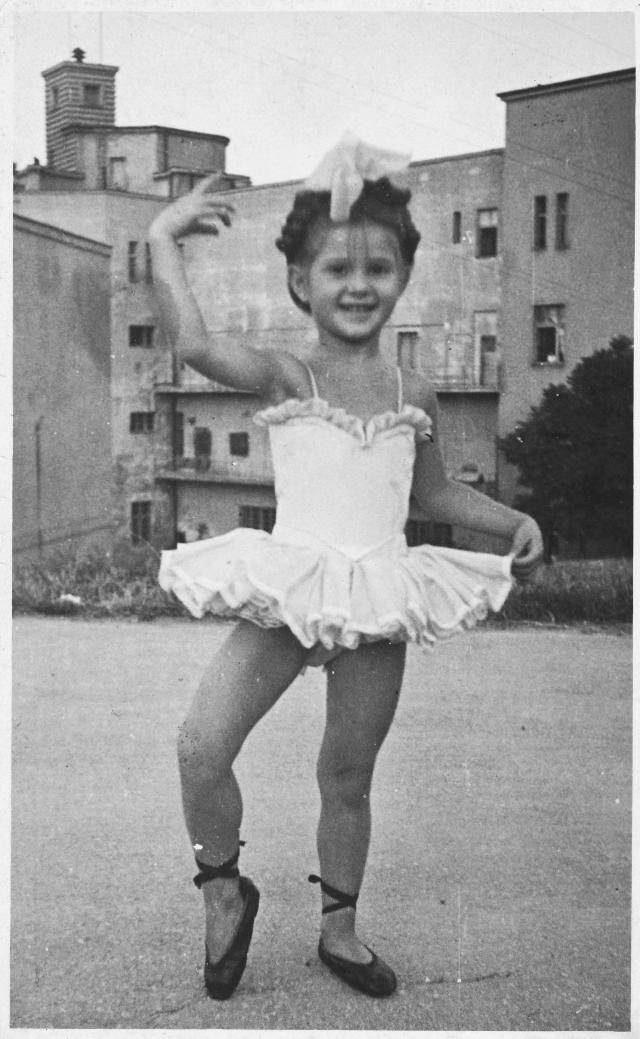
Photo: Nada Simić, private archive
What was your first encounter with art?
That was 70 years ago when my mom, at the age of 3, enrolled me in ballet at the NU "Božidar Adžija," which I attended until I started first grade at "Sava Kovačević" Elementary School. But music, or singing, was always present in my life, and I inherited the talent from my mom and grandma, who had beautiful voices.
I remember watching on a black-and-white Saba television, which dad bought among the first in the city, Tereza Kesovija, Gabi Novak, Arsen Dedić, Lola Novaković, Anica Zubović, and many others.
When did you have your first singing performance?
I don't know if it can be called a performance, but it was on November 8th, when we celebrated St. Demetrius as a family. Relatives and friends would come, we would celebrate with roasted pig and drinks, and at the climax, dad would invite me to sing something. I would climb onto a chair and sing whatever was popular at the time, and in the end, I would earn thunderous applause.
I was surrounded by music. For example, on the way to the XIV Belgrade Gymnasium, which I attended, I would see Miki Jevremović in Koča Kapetan's, where he also lived, chatting with friends from the window. At home, I "covered" all songs: from folk and old town to pop and rock. I loved singing Tina Turner, Aretha Franklin, Roberta Flack... I was a wonder of a child, or as I would say, my mother gave birth to me flawlessly. And then came the first audition.
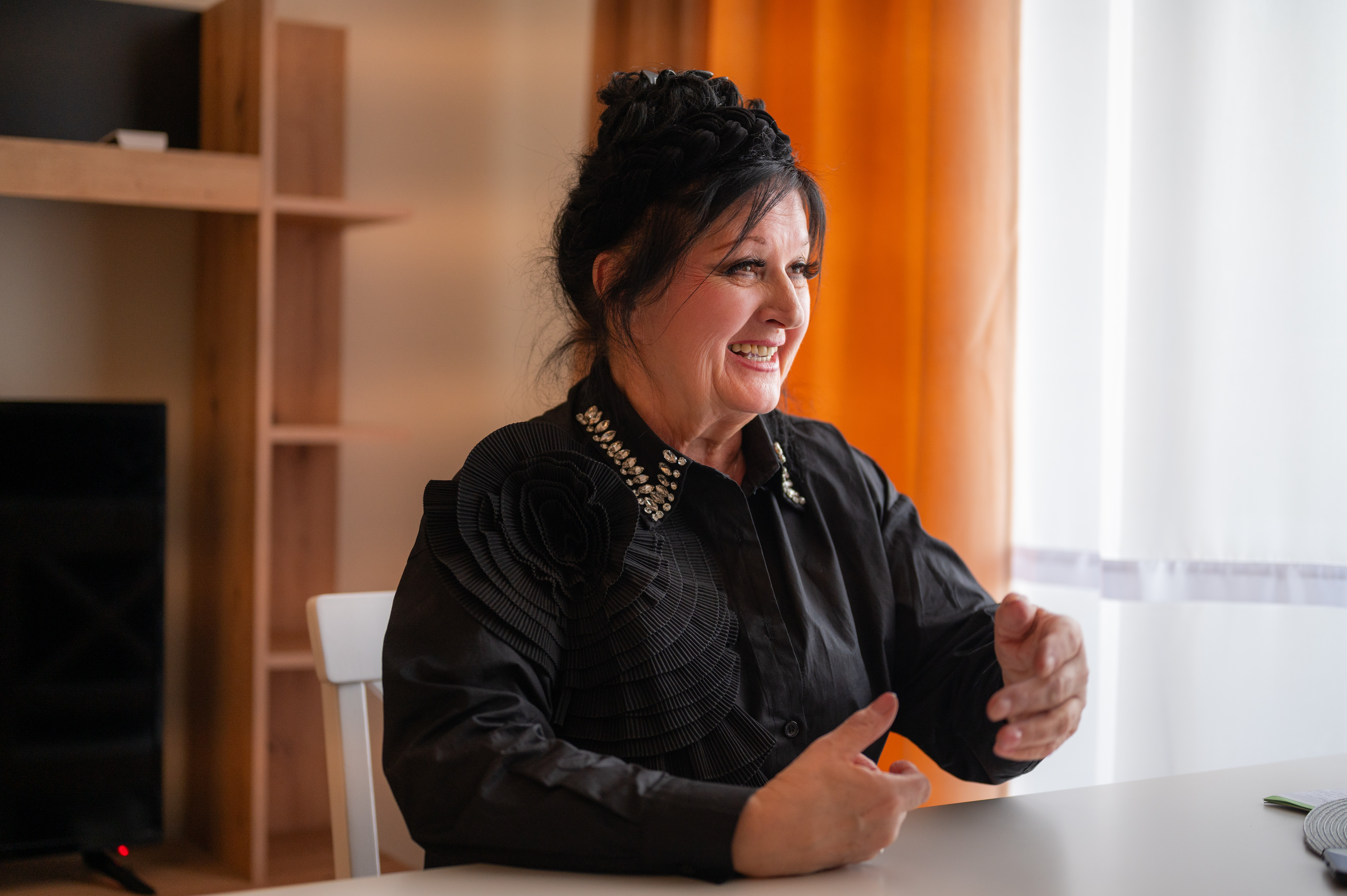
How did you fare in it?
I was 17 years old, and I performed in front of our famous composer Vojkan Borisavljević at the Youth Center. I sang "Puppet on a String" by Sandie Shaw, who won the Eurovision Song Contest with that song. It's an understatement to say that I impressed everyone present, including Vojkan, who exclaimed, "Nada, you're a headache!" Soon after, I had my concert at the same venue.
In the meantime, in 1969, at Atelje 212, there was an audition for the musical "Hair," which came directly from Broadway, organized by the famous Mira Trailović. Accompanied by Saša Radojčić, I sang the selected song and was accepted!
For the next five years, I performed, among others, with Mira Peić, Seka Sablić, Nada Blam, Dragan Nikolić, Dušan Prelević Prele, who was my protector, and many others in the role of a hippie tribe. It was a hit show, everyone watched it, both in Belgrade and in other cities of the former state. Still, I think Olivera Katarina, with her husband Miladin Šekić, was the absolute record holder in attendance!
"Hair" made you a star.
Yes. And I, loving to take care of my appearance, would often go shopping for new clothes to Istanbul and the Grand Bazaar, where everyone would "pounce" on me, offering me coffee and tea. Once, I had a few days off and, of course, I went to the capital of Turkey. On the way back, I had a mishap – the train was delayed, and the performance started at 8 p.m.
At the train station, the stage manager Vlasta was waiting for me with his faithful "Fiat." When we arrived at the theater, Mira was furious, almost tearing her hair out, because they couldn't start without me – I was supposed to sing the opening number "Aquarius" with a broken leg.
Anyway, I rushed up the stairs to the dressing room, where I quickly changed clothes while she kept lecturing me. At one point, I lost my temper and shouted at her at the top of my lungs. Of course, it was heard throughout the theater. When I complained to Zoran Radmilović, he shook my hand and congratulated me.
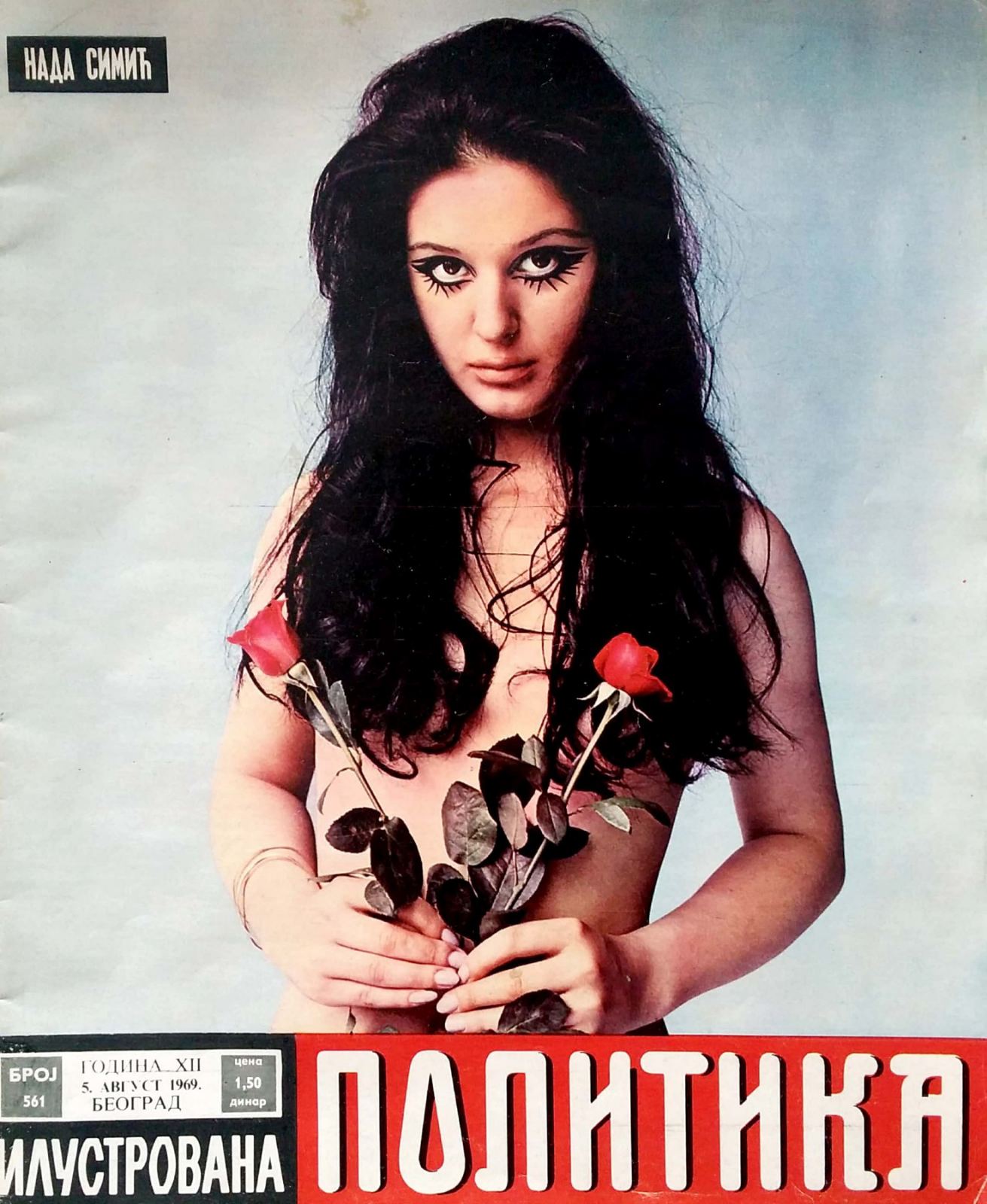
Photo: Nada Simić, private archive
Besides being popular, "Hair" was also somewhat controversial, wasn't it?
That's right. Namely, after the curtain was raised at the beginning of the second act, those who wanted could be completely naked for a few seconds. The decision to be naked was entirely ours; no one forced us to do it. I was one of those who didn't have a problem showing my naked body.
At the same time, my parents supported my decision. Why? Because I was a well-behaved child. And my mother enjoyed the beauty of her child, because it wasn't licentiousness like what we witness every day. For example, there was Dušanka Kalanj, who presented the news and looked like a real lady, and today, with some exceptions, the presenters seem like ladies of the night.
What I mean is that these are incomparable things – I showed beauty. And all the Yugoslav newspapers wrote about me and adorned their front pages because it was all for a higher purpose – for art.
After five years of playing, unfortunately, this musical was taken off the repertoire.
Yes, supposedly because of the scene of tearing up military ID cards, which didn't have a positive impact on the youth at the time. As far as I'm concerned, maybe it was time. "Hair" achieved what it was supposed to, and although there were "revivals," it could never be the same.
On the other hand, I soon had the opportunity to perform, with Đuza Stojiljković and Taško Načić, in the operetta by Polish writer Witold Gombrowicz. This kind of burlesque didn't stay on the repertoire for long, although Tito allegedly was a fan of it. Maybe because I came out naked from a coffin and sang: "I am Albertina, delicate and fine. This is my little hand, this is my little foot, this is my little neck..." The audience would faint, and Đuza would almost always be taken aback.
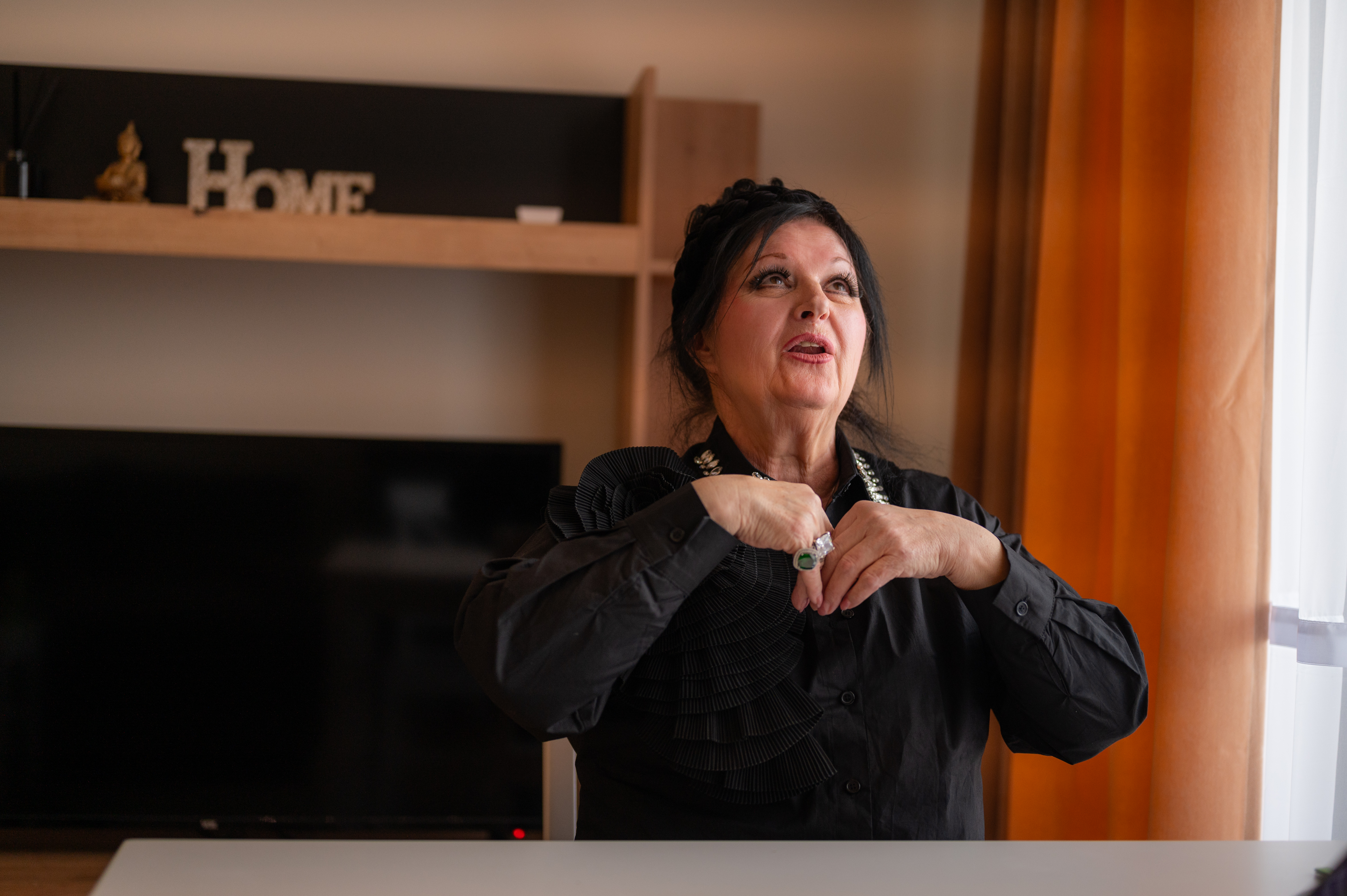
After that, you turned to music.
Completely. First, I started performing at the London restaurant, where I sang old city, folk, and pop songs with Bobi Ilić. Every day you could see the announcement in the Novosti: "Nada Simić and Bobi Ilić show tonight at the London restaurant." And that lasted for a good year.
Then various Belgrade restaurants followed, from Mihajlovac on Banovo Brdo to Dunavski Cvijet, and the Metropol and Jugoslavija hotels. At Panorama, the restaurant of the Jugoslavija hotel, I sang on the ground floor, and Lepa Brena upstairs, and there was a tug-of-war to attract more guests. However, I always had Mića Orlović on my side, who loved to listen to me sitting in the corner.
Shortly afterward, my voice was heard all over the world: from Germany, the Netherlands, France, and Paris, to the USA and New York, Chicago, Detroit, as well as Canada and Toronto. I also released several records. On all those albums, I was accompanied by the Radio Belgrade orchestra under the baton of the famous Ilija Genić, who loved me like a god.
To be honest, I never "burned" myself out from it, because money was the last thing on my mind, but I was happy and satisfied, which, in my opinion, is far more important.
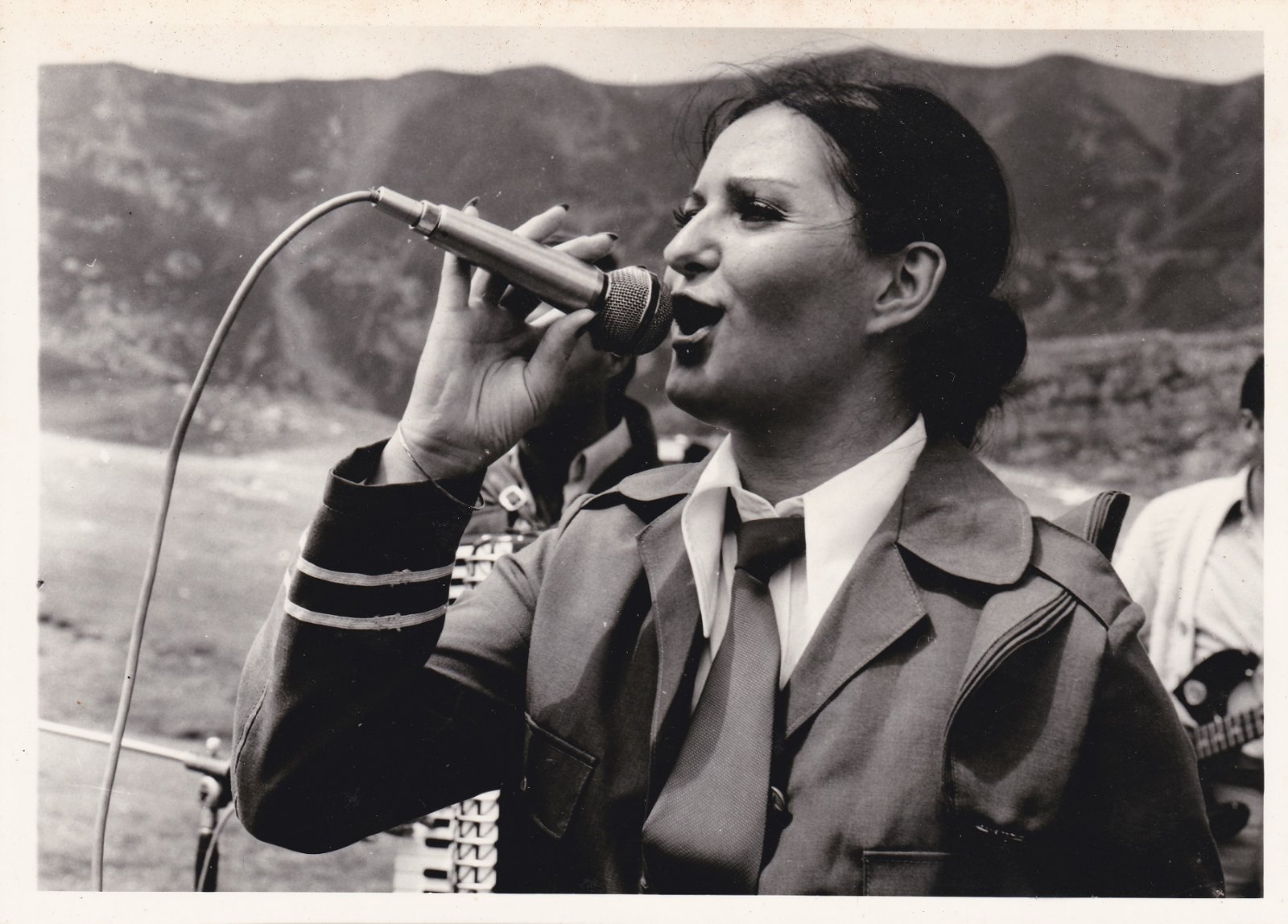
Photo: Nada Simić, private archive
You collaborated with many people. Is there anyone who stands out?
Apart from the ones mentioned above, if I had to choose someone by name, it would definitely be the legendary Miodrag Ilić Beli, the father of my dear friend, now deceased, Aleksandar Sanja Ilić. I recorded the song "Čen, Čen, Čen," a cover of Aretha Franklin's "Chain of Fools," which was a big hit, in his studio.
Is there a performance that particularly stands out in your memory?
It's enough to say that I sang in a JNA uniform on the Albanian border. What also stands out, and is quite unthinkable today, was my performance in Priština in 1980. For three New Year's Eve nights, Dragoljub Majkić sent me there by plane along with Zorica Brunclik and Ljuba Kesić. I had an engagement at the Grand Hotel, and Zorica and Ljuba at the Kosovski Božur tavern.
And do you know who was present at all my performances? None other than Mahmut Bakali, who was known as a womanizer. And one evening, just before I went on stage, a waiter grabbed my hand and pulled me in an unknown direction... It turned out he took me to Mahmut, who was surrounded by a lavish table and my pictures. He claimed he just wanted to meet me personally, although I believe he had hidden motives, but I wasn't that kind of girl.
The moral of the story? I was never short of admirers wherever I performed.
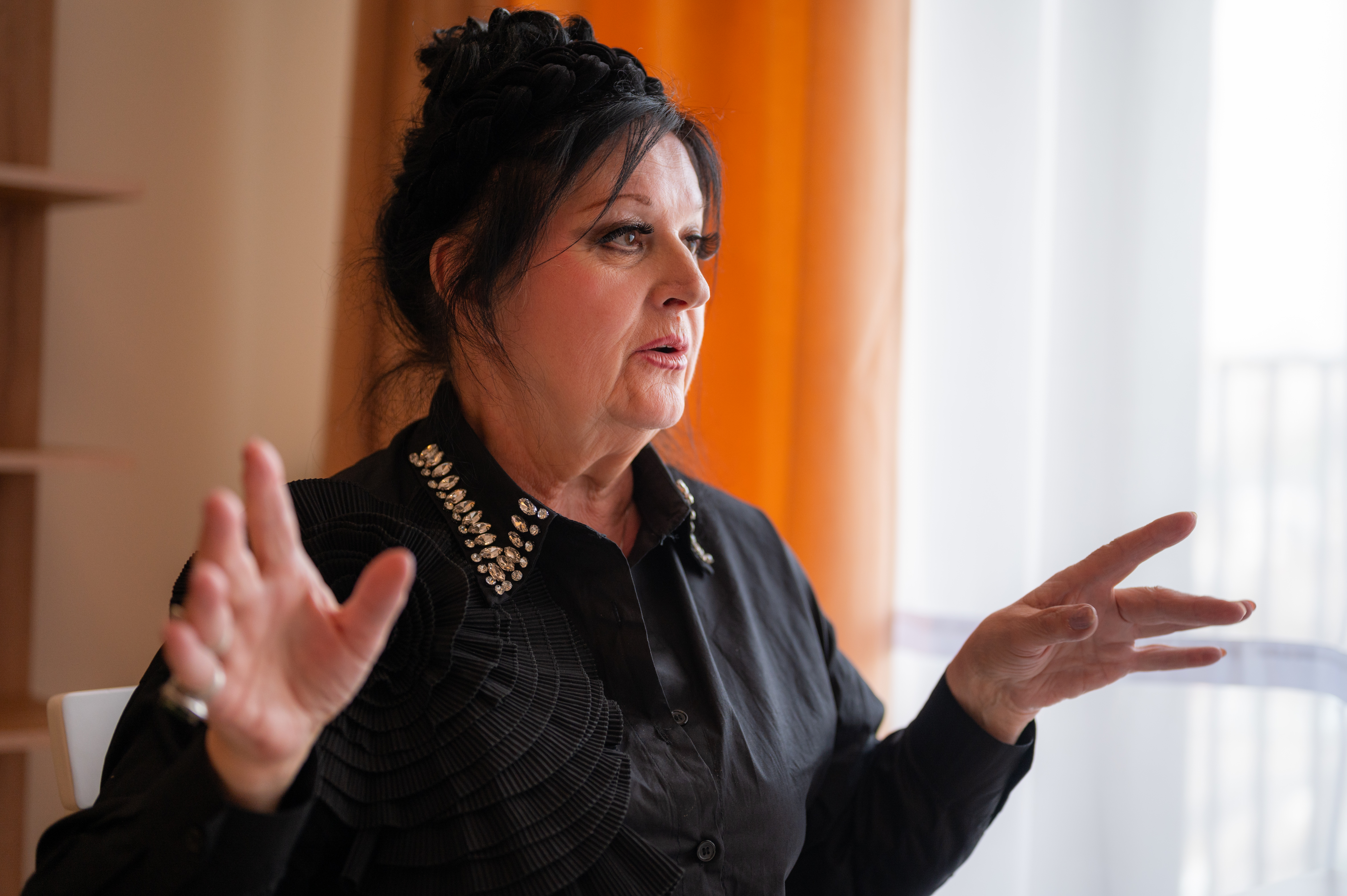
Nevertheless, tough times came.
They did. That was also the main reason why I headed to distant Australia. Actually, it was at my mother's urging, who told me in the early '90s that there was no life here anymore. I first visited Australia in 1988 and fell in love with the country. I remember visiting the Paddy's Market, the largest market at the time, and filling five suitcases with items.
Anyway, in 1992, I easily got a visa – humanitarian, though – and set off to the land of kangaroos. First, I performed in Melbourne with the Montenegrin brothers, who also provided me with an airplane ticket, and then in Sydney. Eventually, I settled in Wollongong, about 60 km from Sydney, where I found my new profession.
What did you start doing?
Pastry making, in a word, and completely by accident. Namely, there's a Serbian church and community in Kenny Street, which I joined. To show my appreciation for their warm acceptance, I made some homemade cakes, which I learned to make from my mom, and they were a hit.
And, as usual, word got out that Nada makes top-notch cookies and cakes, and it all started to flow naturally. I became the person you turn to when it's the holidays and you want vanilla cookies, rolls, Gerbeaud cake, etc. Moreover, for my pastry skills, I earned countless thank-you notes. That's why I say I've had three lives: theater, song, and pastries.
At the same time, in Australia, I managed to change my lifestyle. I quit smoking cigarettes, and a decade ago, meat, after my daughter showed me how chickens are fattened, or how they gain three kilograms in weight in three days. Today, I lead a healthy and happy life – a life without doctor visits and taking medications.
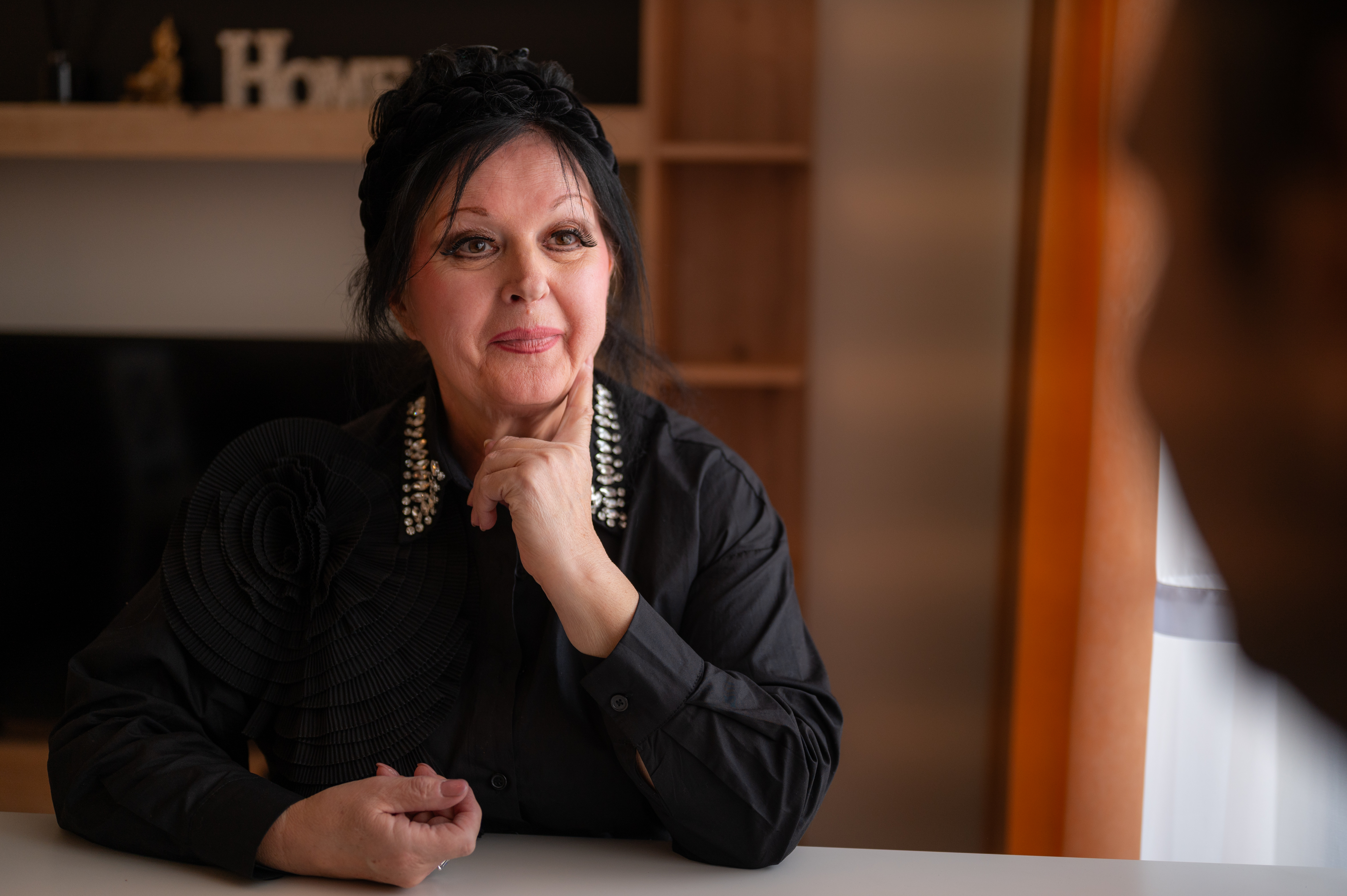
What are the most sought-after cookies in Australia?
Definitely vanilla cookies. They're supposed to be round, but I introduced a novelty – I started using molds of all possible shapes. For the filling, I usually use a combination of rosehip and apricot jam. Although there's currently a craze for cakes in various colors and with lots of creams, people still love my vanilla cookies.
Did your daughters inherit any of your talents?
Jelena, who lives in Serbia, has an exceptional vocal, while Sue-Ellen is a true scholar – she has a master's degree in political science, works at the University of Sydney, where she aspires to become a dean. For me, it's only important that they are happy and content, wherever they live and whatever they do.
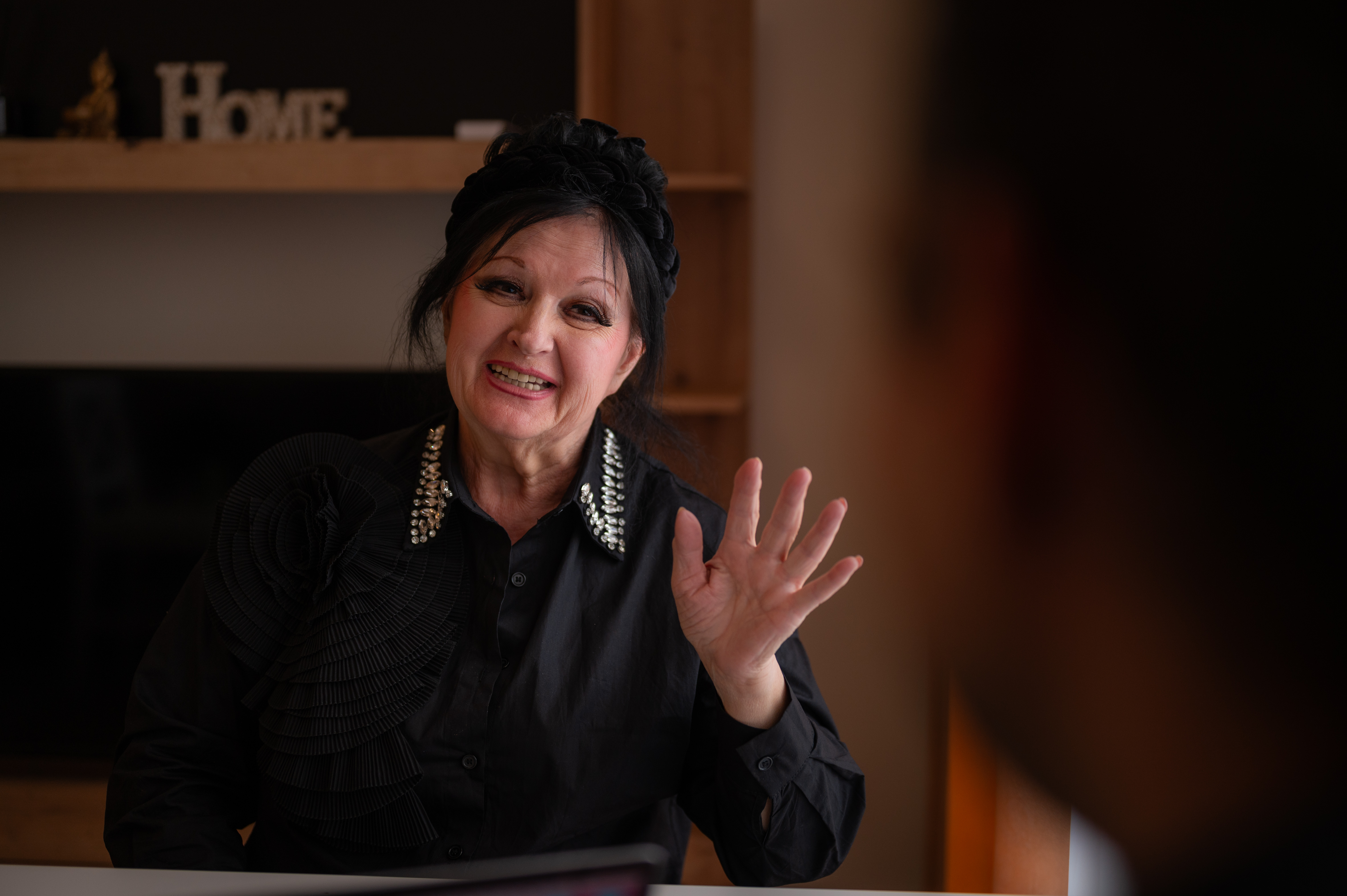
Do you ever think about permanently returning to Belgrade?
During the 32 years I've lived in Australia, which has accepted me as its own and granted me a pension, I've visited my Belgrade several times. The penultimate time was in 2019, just before the pandemic, for the celebration of the 50th anniversary of the premiere of "Hair."
Apart from being happy to see some wonderful people again, where Nadica Blam offered me accommodation, I was also disappointed by how neglected Belgrade was. There was so much garbage everywhere that I felt like picking up a broom and a dustpan and tidying up. Yes, it's nice that there's construction going on, but I would like to see more maintenance and cleaning, because that's how the capital is represented.




 8 ℃
8 ℃

